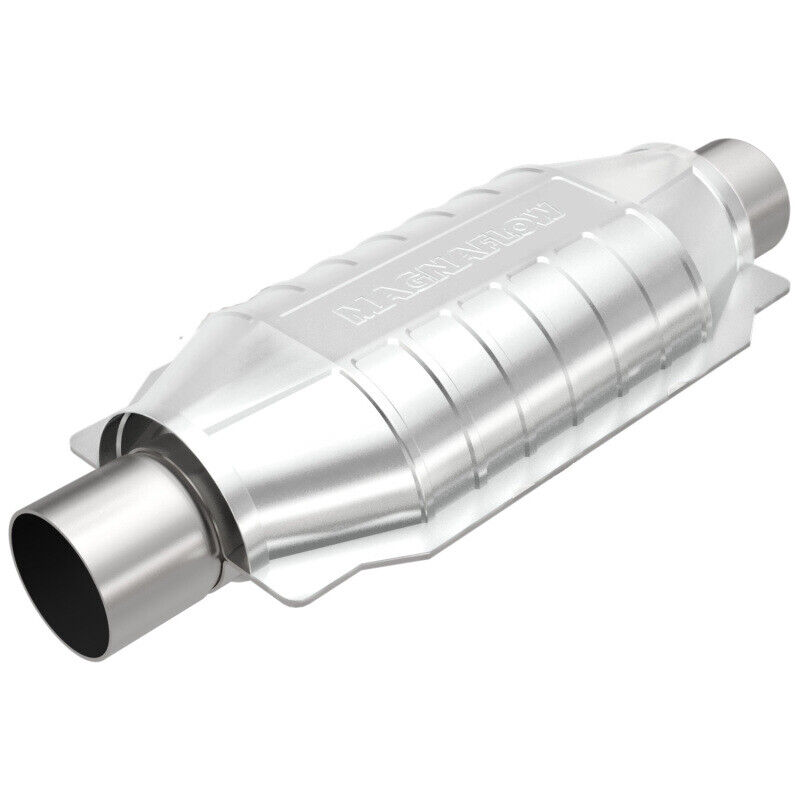In today’s automotive landscape, the question of whether you can use a car without a catalytic converter arises frequently. The catalytic converter is a critical component of a vehicle’s exhaust system, designed to reduce harmful emissions and protect the environment.
However, there are situations where car owners might contemplate removing or bypassing this component. In this comprehensive guide, we delve into the intricacies of catalytic converters, exploring their functions, legal implications, and the potential consequences of their removal.
Understanding the Catalytic Converter
Before we dive into the subject, let’s clarify what a catalytic converter is and how it works.
What Is a Catalytic Converter?
A catalytic converter is an emissions control device located within a vehicle’s exhaust system. Its primary purpose is to reduce the emission of harmful pollutants, such as carbon monoxide (CO), hydrocarbons (HC), and nitrogen oxides (NOx), from the exhaust gases that are expelled from the engine. This device plays a vital role in minimizing the environmental impact of internal combustion engines, making them less detrimental to air quality.
How Does It Work?
Catalytic converters function through a series of chemical reactions. Inside the converter, there are precious metals, typically platinum, palladium, and rhodium, that act as catalysts. When exhaust gases pass through these metals, chemical reactions occur, converting harmful pollutants into less harmful substances.
- Carbon Monoxide (CO) is transformed into carbon dioxide (CO2).
- Hydrocarbons (HC) are converted into carbon dioxide (CO2) and water (H2O).
- Nitrogen Oxides (NOx) are broken down into nitrogen (N2) and oxygen (O2).
This process significantly reduces the emissions of these pollutants, making the car more environmentally friendly.
The Legal Aspect
Now that we have a better understanding of what a catalytic converter does, let’s explore the legal implications of removing or bypassing it.
Is It Legal to Drive Without a Catalytic Converter?
In most countries, it is illegal to drive a car on public roads without a functioning catalytic converter. Regulations are in place to ensure that vehicles meet emission standards, and the catalytic converter is a critical component in achieving these standards. Removing or tampering with it can result in fines, penalties, and the vehicle being declared unfit for road use.
Reasons for Removing a Catalytic Converter
Despite the legal consequences, some car owners consider removing their catalytic converters for various reasons. Let’s delve into some of the common justifications for doing so.
1. Performance Enhancement
One of the primary reasons people remove catalytic converters is to enhance their vehicle’s performance. Without the converter, exhaust gases can flow more freely, potentially increasing horsepower and torque. However, it’s essential to note that the performance gains may not be substantial, and the environmental trade-off is significant.
2. Cost Considerations
Catalytic converters can be expensive to replace when they fail or become clogged. Some car owners, seeking cost-effective solutions, may opt to remove the converter and replace it with a straight pipe. While this may save money initially, it is not a sustainable or responsible choice from an environmental perspective.
3. DIY Repairs
Individuals with a strong inclination for do-it-yourself (DIY) car repairs may attempt to remove the catalytic converter to address exhaust-related issues. While this might be a temporary fix, it is not a recommended long-term solution.
Consequences of Catalytic Converter Removal
Now that we’ve discussed why some car owners consider removing catalytic converters, it’s crucial to understand the potential consequences of such actions.
Environmental Impact
Removing a catalytic converter significantly increases a vehicle’s emissions. This, in turn, contributes to air pollution, negatively affecting air quality and public health. It’s an environmentally irresponsible choice that can harm the planet and future generations.
Legal Consequences
As mentioned earlier, driving without a functioning catalytic converter can lead to legal repercussions, including fines and the suspension of driving privileges. It’s essential to comply with emission regulations to avoid these penalties.
Reduced Resale Value
Cars without catalytic converters are generally less desirable in the used car market. Removing this crucial emissions control device can reduce the resale value of your vehicle.
Conclusion
In conclusion, the question of whether you can use a car without a catalytic converter is not merely a matter of feasibility but also one of responsibility and legality. While some car owners may contemplate removing this emissions control device for various reasons, it’s crucial to consider the environmental impact, legal consequences, and potential harm to the vehicle’s resale value.
